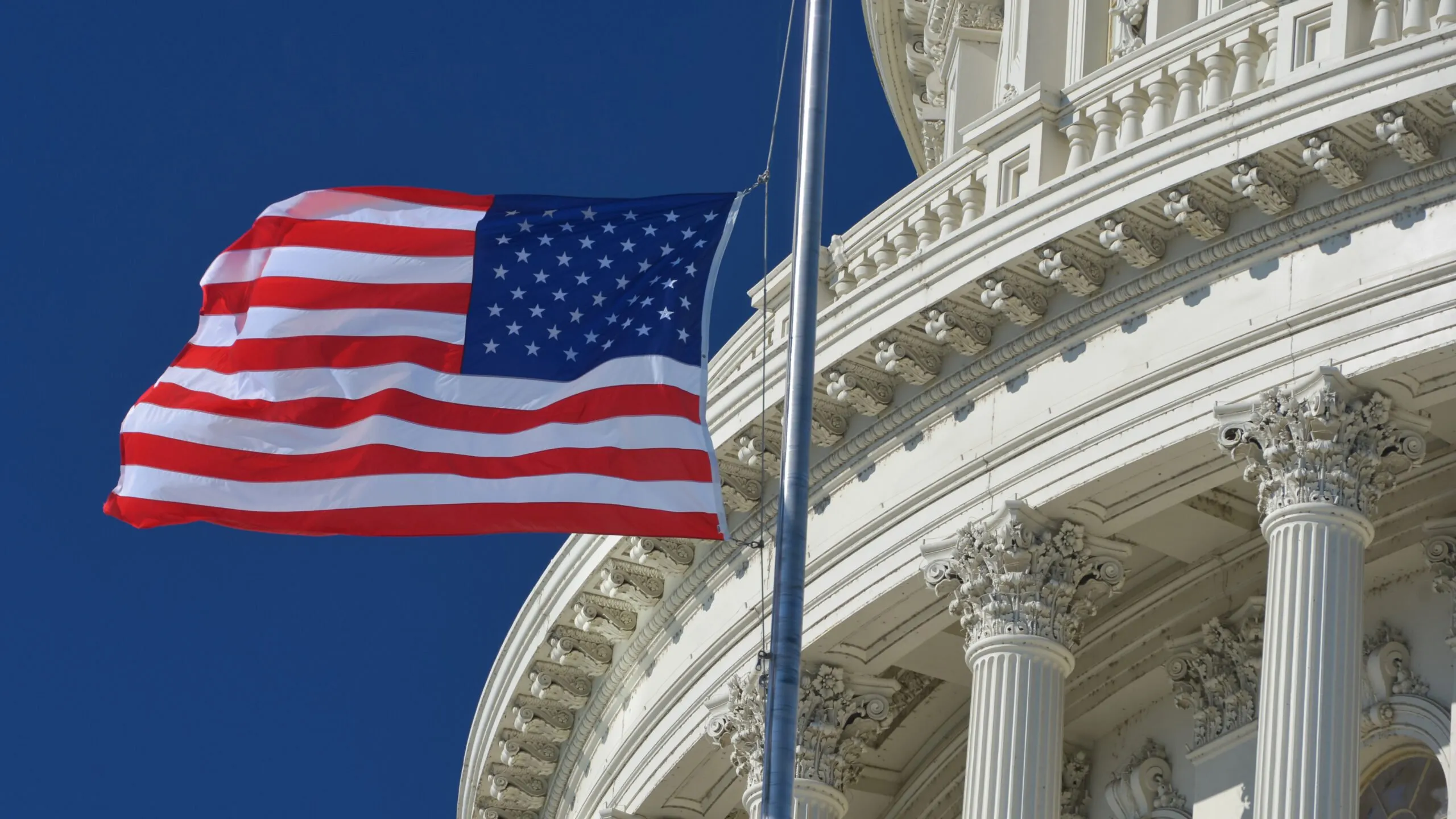Two U.S. congressmen are pushing to include legal protections for NFTs in a wide-ranging bill that would create a more sensible regulatory framework for digital assets.
Rep. William Timmons (R-SC) told Decrypt on Tuesday that he is trying to get the New Frontiers in Technology, or NFT Act, included in an altered version of the so-called Financial Innovation and Technology for the 21st Century Act (FIT21), which was passed by the House of Representatives last year but has yet to gain Senate approval.
On Tuesday, Senate Banking Committee Chairman Tim Scott (R-SC) said he’s adamant that crypto markets structure and stablecoin bills will be passed in the Senate within the first 100 days of Donald Trump’s presidency.
The proposed law would, for the first time, establish clear rules for the regulation of digital assets by delineating the responsibilities of the Commodity Futures Trading Commission and the Securities and Exchange Commission, among other things. And since FIT21 was passed during the last Congress, it will need House lawmakers’ stamp of approval again.
Introduced by Timmons and Rep. Ritchie Torres (D-NY) in December, the NFT Act would designate some NFTs as non-securities, covering works of art, video game assets, and memberships, among other consumer areas outlined in the bill’s text.
“Not only do we need rules of the road for stablecoins and digital assets, our NFT bill is a great opportunity to help create more clarity,” Timmons told Decrypt.
Food and beverage giants like McDonald's and Starbucks have experimented with NFTs as a way to reward consumers, while entertainment brands like Disney and DraftKings have leveraged the technology for digital collectibles and gaming experiences.
Under SEC Chair Gary Gensler, however, NFTs largely existed in a legal gray area. The former official, who resigned last month, helped lead several enforcement actions against startups issuing NFTs during his tenure.
When Mila Kunis’s production studio was forced to destroy NFTs attached to its “Stoner Cats” animated series in 2023, the SEC’s demands were particularly egregious and captured its regulatory overreach, Torres told Decrypt. The show featured numerous A-list stars including Kunis, Ashton Kutcher, Chris Rock, and Jane Fonda.
“There needs to be a regulatory framework in place to prevent the kind of weaponization of government that we saw under former SEC Chair Gary Gensler,” said Torres. “Gensler’s SEC was aggressive in targeting NFTs in particular.”
The SEC brought its first enforcement against a firm issuing NFTs in 2023, alleging the Los Angeles-based media company Impact Theory unlawfully used them to raise $30 million. The agency also issued an enforcement threat against the NFT marketplace OpenSea, the company said in 2024, while reaching a settlement with the restaurant Flyfish Club over its sale of NFT access passes.
Gotta catch ‘em all
As cryptographically unique tokens linked to digital (and sometimes physical) content, NFTs boomed on Ethereum in 2021 and 2022.
Projects like the Bored Ape Yacht Club and CryptoPunks caught mainstream attention along with listings at esteemed auction houses. As luxury goods and digital status symbols, they sometimes sold for millions of dollars.
But over the past few years, the NFT market has cooled off, as users have gravitated toward meme coins. One NFT collection, Pudgy Penguins, has bucked the trend and grown in popularity, but even that project has launched a meme coin, PENGU, on Solana. The prospect of token rewards for NFT holders helped juice sales in late 2024.
Within the SEC, Republican commissioners felt that many enforcement actions against NFT projects under Gensler’s authority were unwarranted.
SEC Commissioners Mark Uyeda and Hester Peirce dissented against charging Impact Theory with securities laws violations, arguing that the SEC does not “routinely bring enforcement actions against people that sell watches, paintings, or collectibles along with vague promises to build the brand.”
Targeting “Stoner Cats,” the commissioners argued the SEC was effectively trying to police “Star Wars collectibles sold in the 1970s” with no limiting principle.
Torres himself clashed with Gensler, peppering the former figurehead with questions about the regulatory status of consumer-focused NFTs on Capitol Hill. In one instance, Gensler declined to opine on tokenized Pokémon cards. Another time, Gensler danced around the hypothetical question of whether a digital Yankees ticket was a security when a paper one was not.
“If the SEC is technology-neutral, as it claims to be, then the use of blockchain should be irrelevant,” Torres said. “It was clear that Mr. Gensler was applying securities law in a manner that was discriminating against blockchain technology.”
‘Crucial step’
Ditching the agency’s aptitude for enforcement actions, Acting SEC Chair Uyeda and new crypto task force lead Peirce have signaled that the SEC will adopt a far more collaborative approach toward crypto firms.
Still, the NFT Act has some caveats. It excludes NFTs issued as financial instruments, and does not protect NFTs that are marketed by an issuer or promoter primarily as an investment contract.
The bill would also instruct the U.S. Comptroller General to study whether NFTs could be used in business settings as representations of documents, identification, or even government records.
The NFT Act was initially promoted by The Digital Chamber, a crypto advocacy group. Even though NFTs might not be the buzziest thing in crypto today, the Chamber’s President Cody Carbone told Decrypt that the legislation is much needed.
“The NFT Act is a crucial step toward regulatory clarity for both consumers and creators,” he said. “We are hopeful this bill advances swiftly and is included in any broader crypto legislation considered by this Congress.”
The stance was echoed by Torres, who said the legislation would ensure that NFT projects aren’t unfairly targeted by regulators in the future.
“We pass laws to apply not only to present administrations, but also future administrations,” he said. “There could be a future Gary Gensler chairing the SEC.”
Editor's note: This article was updated for clarity.
Edited by Andrew Hayward

